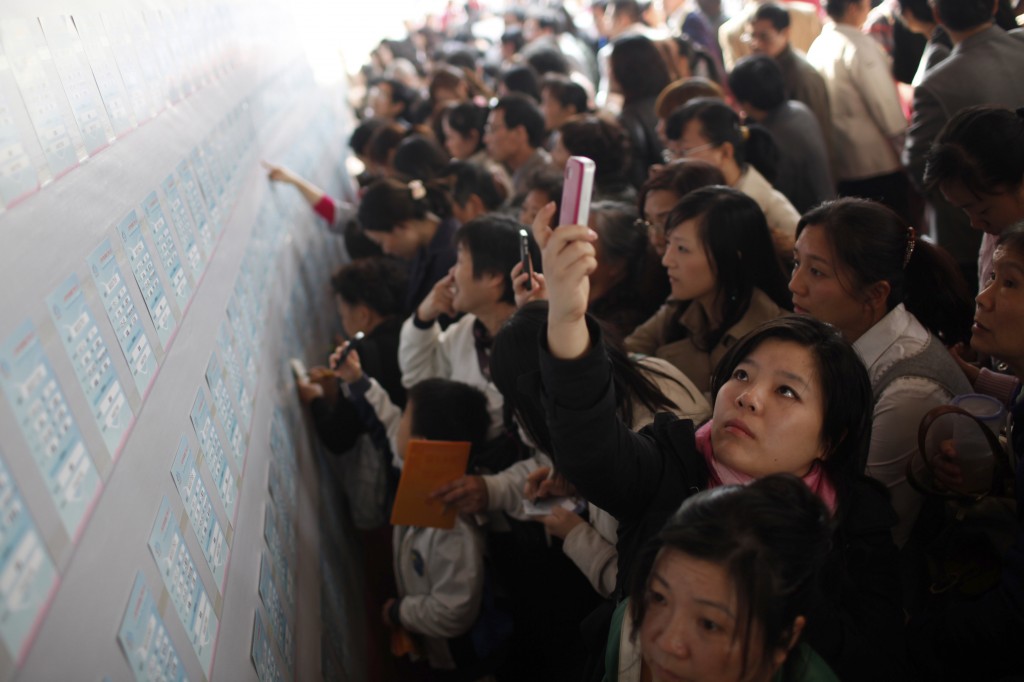Literature is one of the few fields in which megalomania is a good thing. In fact, as Italo Calvino argued, without megalomania it is barely worthwhile.
Academic Alastair Macintosh claimed that the world is a ball of strings, including economics, ecology, theology and popular culture. Most non-fiction books about China written in English in recent years tend to be happy to pull at just one string. A novel by contrast can reasonably attempt to unravel the whole ball.
“The Incarnations” by Susan Barker is a radical and fascinating novel that makes a commendable fist of doing just this. Covering over a millennium of history and most of the major themes that are currently popular with China watchers, to work with such material would – in less capable hands – be as irresponsible as playing with a ouija board. But Susan Barker, a Creative Writing M.A. who researched the book over several years after moving to China in 2007, handles it with near flawless sensitivity and skill.

Wang Jun, a Beijing cab driver, starts receiving anonymous letters from someone who claims to have been close to him over several previous lives as well as his current one. Some letters display an intimate knowledge of Wang Jun’s far from perfect family life. Others tell stories about the narrator’s relationships with Wang Jun as he was everything from a slave of Mongol invaders in the thirteenth century to a foreigner during the Qing Dynasty.
The most extraordinary of the chapters set in the past takes place during the Tang Dynasty and would stand alone as a short story. Loaded with fascinating period details, it claims that Wang Jun became a eunuch after fathering the narrator and is one of the places in which Susan Barker’s flare as a prose stylist is truly successful. In one scene, a madam gives an inexperienced young prostitute the following advice:
Men have all sorts of peccadilloes…some men like to penetrate the red during a woman’s moon cycle, or piddle on a woman out of the jade watering spout. Some men like to poke a woman in the back passage, which is called pushing the boat upstream.
As fascinating as this is, the strongest part of the novel is that set in the Hu Jintao era. It paints a convincing picture of ordinary, downtrodden Beijingers as the new China prepares to celebrate its 2008 coming out party. Every character has a compelling and believable backstory and through them, Susan Barker shows a deep engagement with the major issues in modern China that have been written about over the past decade.
We first meet Wang Jun when he is delving through garbage (Adam Minter’s “Junkyard Planet”). Wang Jun’s wife points out that girls are less important in the eyes of their parents, therefore they are freer (Leslie Chang’s “Factory Girls”). Wang Jun’s colleague Baldy Zhang is an incurable misogynist (Leta Hong Fincher’s “Leftover Women“). Wang Jun’s father is a bent government official (Philip Pan’s “Out of Mao’s Shadow”). One of the major characters is an oppressed homosexual (Richard Burger’s “Behind the Red Door”).
Whether or not Susan Barker read all these books, it is clear that her knowledge of China was won rather than scavenged. One of the major themes is China’s selectiveness in what areas of its past it’s willing to face (Louisa Lim’s “The People’s Republic of Amnesia”), but this need not distract from the fact that, for all its erudition, “The Incarnations” is best enjoyed as a thriller.
Susan Barker is a brilliant prose stylist and this book should be read out loud. Even some of the most minor details are charged with social and historical insight, such as the items that Wang Jun finds as he rummages through garbage. The notoriously difficult sex scenes are also well done.
However, Barker’s stylistic brilliance is the source of the novel’s biggest weakness – overwriting. Some of the similes, which average more than one per page in some sections, fall flat, not sufficiently defying cliche to warrant inclusion. Children are “wrapped up like little eskimoes” in winter.
This indulgent use of dazzling writing can be unappealing, like a beauty queen whose knowledge of her own hotness is to the detriment of her likability (oops, an unnecessary simile). At times, the excessive scene setting distracts from the narrative and makes the book a bit too much like a Creative Writing PhD thesis (oh bugger, another one). At times, my enjoyment of the writing declined like Wang Jun’s marriage (that’s the last one, I promise).
Moreover, Barker doesn’t always follow the principle that adverbs are guilty until proven innocent, though there is one brilliant use of the word “unfilially” towards the end. The edition I received also contains some utterly avoidable errors, although it is a pre-release version that may change prior to printing. Wang Jun’s stepmother Lin Hong is twice referred to as “Ling Hong.” Changsha is described as Mao Zedong’s hometown. The word “drank” is mixed up with the word “drunk” and the word “wedding” is mixed up with the word “marriage.”
Most of the scene setting is excellent though, such as at the beginning when Barker introduces Beijing by describing some of the passengers Wang Jun has had over the years. “Incarnations” is a genuine page turner that brings it all together quite unlike any other book about China published in the past decade.
“Incarnations” will be released in hardback on July 3 and is available on Kindle.
















